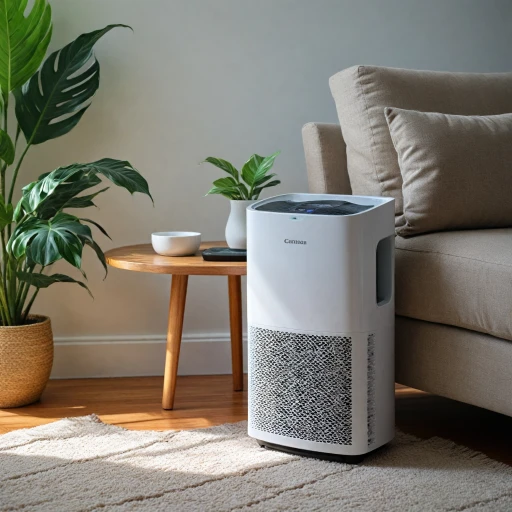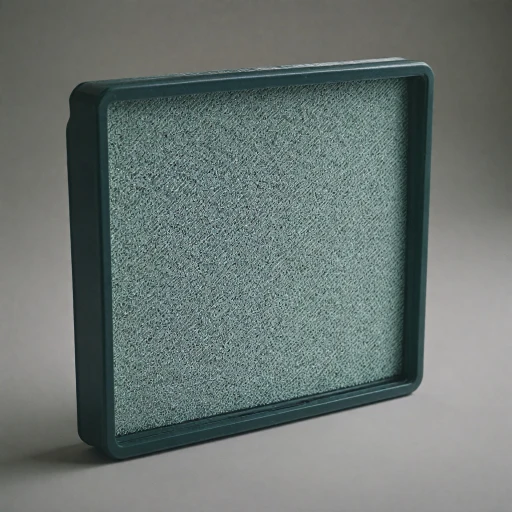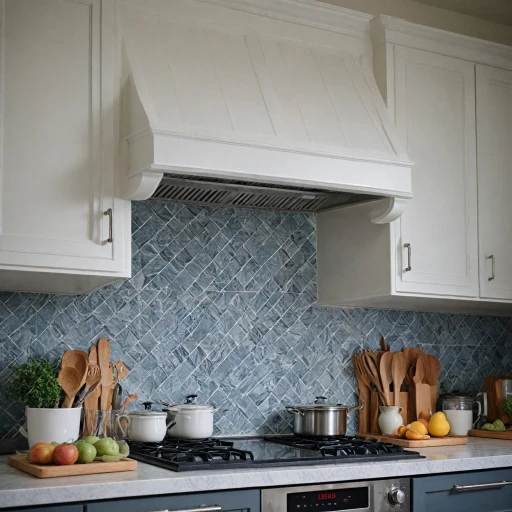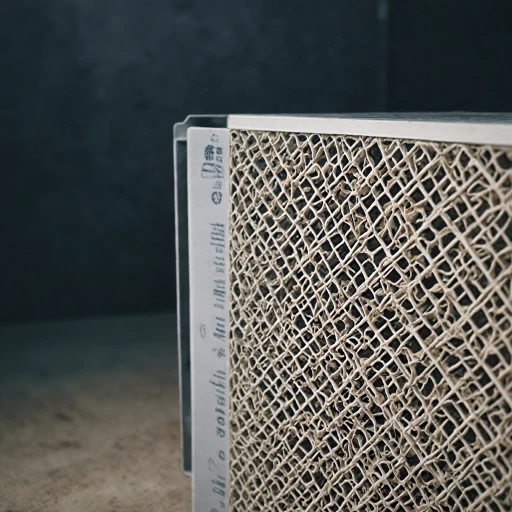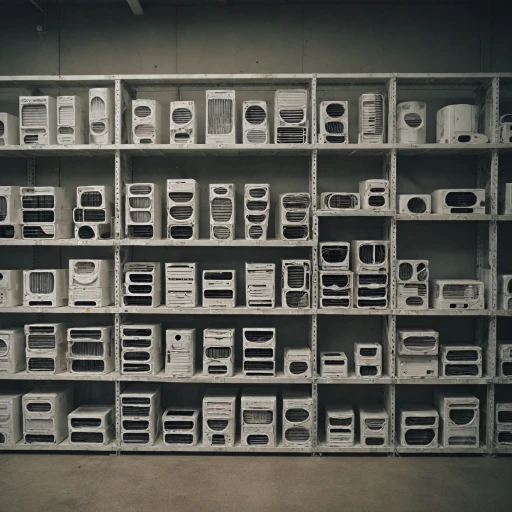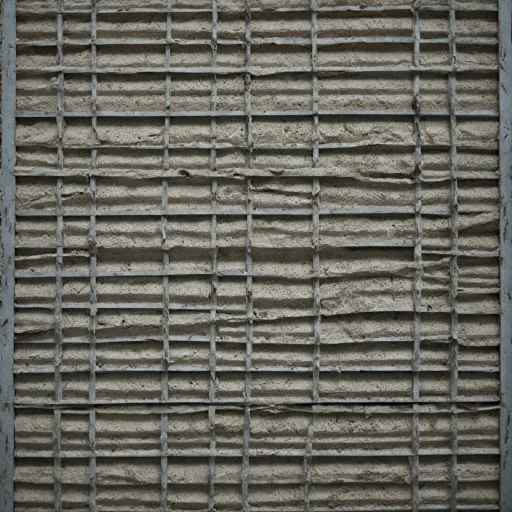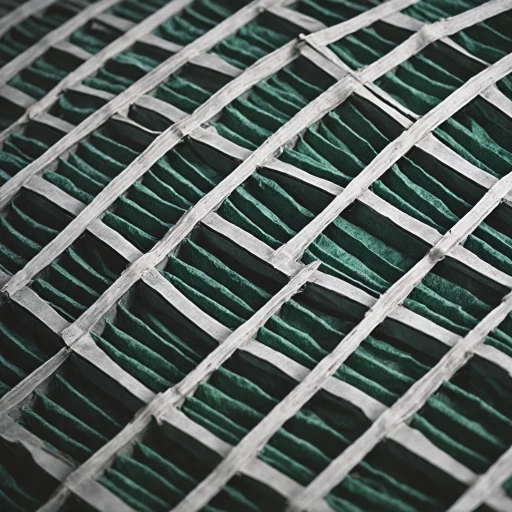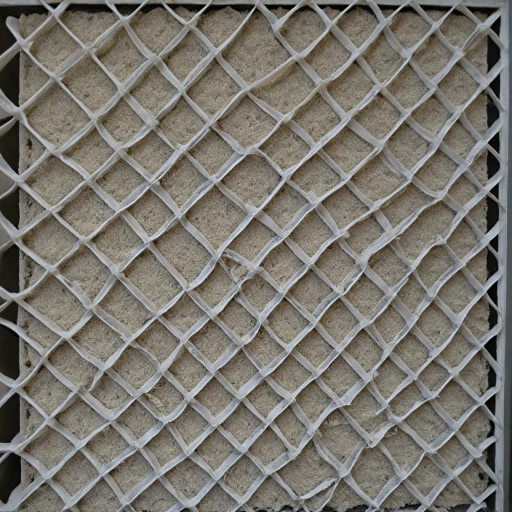
The Role of Kitchen Hood Filters
The kitchen hood filter serves as an essential component in both residential and commercial settings, ensuring that the air quality in the kitchen remains optimal. These filters prevent unwanted smoke, grease, and odors from circulating back into the kitchen by trapping particles before they can escape through the exhaust system.Keeping Grease and Particles at Bay
Hood filters are crucial in capturing grease and particles emitted during cooking. The greasy buildup not only affects the performance of the exhaust hood but also poses a significant fire hazard if not managed properly. Grease filters, typically made from durable materials like stainless steel or aluminum, manage to trap grease effectively due to their corrosion-resistant properties. This is particularly important in busy restaurant kitchens where heavy-duty cooking generates higher levels of grease and particulates.Ensuring Effective Performance
To maintain their effectiveness, hood filters must be cleaned and maintained regularly. Neglected filters can compromise kitchen air quality and put unnecessary strain on exhaust fans and range hoods. Additionally, certain filters like mesh or charcoal filters need to be replaced periodically to ensure they continue to trap particles effectively. The use of quality filters effectively supports the exhaust hood system and reduces the buildup in grease ducts, contributing to overall indoor air quality. For more information on related filtration systems, consider exploring the process of understanding the role of prefilters in air purifiers at this link.Types of Kitchen Hood Filters
Variety of Hood Filters for Every Need
When it comes to selecting the ideal filter for your kitchen hood, you'll find a vast array of options tailored to specific needs. The ultimate goal is keeping your kitchen's air clean and free from harmful particles such as grease and smoke. Here's a closer look at the different types of kitchen hood filters available today:- Mesh Filters: Known for their affordable price point, mesh filters are lightweight and typically made of aluminum. They are popular choices in both residential and commercial hoods because they efficiently trap grease, preventing it from clogging the exhaust hood and duct. However, mesh filters require regular cleaning, as buildup can reduce effectiveness and even pose a fire risk.
- Charcoal Filters: If you have a ductless range hood, charcoal filters are essential. These filters effectively absorb odors and smoke to enhance indoor air quality. They need to be replaced frequently to ensure optimal performance, so it's wise to consider the regular price and availability of replacements when choosing this type.
- Stainless Steel Baffle Filters: For those seeking heavy-duty options, stainless steel baffle filters are corrosion resistant and highly durable. They are predominantly used in commercial kitchens where fire suppression systems are installed. The stainless steel construction ensures longevity, even when exposed to the intense conditions often found in restaurants.
- Grease Filters: Specifically designed to capture grease particles, these filters protect your exhaust fans and ducts from grease buildup. Regular maintenance is essential to prevent blockage and potential hazards in a commercial hood.
How to Choose the Right Kitchen Hood Filter
Selecting the Ideal Kitchen Hood Filter for Your Needs
Choosing the appropriate hood filter for your kitchen setup is crucial, whether you're managing a bustling restaurant or simply enhancing your home cooking environment. Here’s what you need to consider:- Type of Cooking Environment: The demands of a commercial kitchen differ significantly from those in a domestic setting. Commercial hoods, designed with durability and heavy-duty requirements in mind, often use baffle filters made of stainless steel or aluminum. These are particularly effective in capturing substantial amounts of grease and can withstand high temperatures and regular cleaning.
- Material Consideration: Stainless steel filters are popular due to their corrosion resistant properties and long lifespan. Aluminum filters, meanwhile, offer a lightweight alternative that is typically more affordable.
- Filtration Requirements: Depending on the type of cooking, you might need a hood filter that excels in trapping grease or one that provides superior air filtration. For enhanced air cleaning, consider filters that incorporate both baffle structures and mesh designs, ensuring optimum performance.
- Consider Costs: Balancing performance and cost is vital. While stainless steel options may come at a higher initial cost, their durability and effectiveness make them a cost-effective solution in the long-term.
- Fire Safety Features: A grease filter with fire suppression capabilities is advantageous in settings where safety is paramount. Filtering systems integrated with range hoods reduce the risk of grease duct fire hazards through capturing and neutralizing grease particles.
- Size and Fit: Accurate measurements are key. Ensure that the filters match the dimensions of your hood to maintain efficient airflow and capture efficiency. Many suppliers offer flexible kit options that accommodate various hood dimensions.
Maintenance and Cleaning of Kitchen Hood Filters
Ensuring Long Life and Efficiency of Your Hood Filters
Maintaining and cleaning your kitchen hood filters is vital to ensuring both the longevity and efficiency of your range hood system. Regular care can prevent build-up and potential hazards, such as blockages or fire risks.
Routine Cleaning Practices
Cleaning your kitchen hood filters should be a routine process, especially in settings like a commercial kitchen, where use is frequent. Depending on the type of filters, the process will differ:
- Mesh Filters: These filters are often made from aluminum or stainless steel and can be easily removed and soaked in hot, soapy water. Use a non-abrasive brush to scrub away grease buildup.
- Charcoal Filters: Unlike other types, charcoal filters cannot be washed. They need to be replaced according to the manufacturer's recommendations, typically every few months.
- Stainless Steel Filters: Similar to mesh filters in cleaning method, stainless steel filters can be washed manually or in a dishwasher for convenience.
Regular Maintenance Checks
Apart from cleaning, proactive maintenance involves checking the filters regularly for any signs of wear and tear, such as corrosion resistant features losing efficiency, or damages to grease filters. Replace any hood filter that appears compromised.
Professional Services
For businesses such as restaurants with heavy-duty use, contracting professional services for routine maintenance of range hoods and exhaust fans might be beneficial. Professionals can ensure a thorough cleaning of the grease duct and fire suppression systems, which is crucial for safety and performance.
Investment in Durable Materials
Opting for high-quality materials like stainless steel can reduce the frequency of replacements and lower long-term costs compared to the regular price and unit price of lesser quality filters. A well-maintained stainless hood helps in achieving a smooth operation and ensures good air quality by effectively capturing smoke and grease.
Common Problems with Kitchen Hood Filters
Identifying and Addressing Common Issues
Kitchen hood filters play a crucial role in maintaining air quality by trapping grease and other particles. However, they can encounter several issues that may affect their performance. Understanding these problems can help in maintaining an efficient kitchen environment.
- Grease Buildup: One of the most common issues with hood filters is grease accumulation. Over time, grease can clog the filters, reducing their efficiency and increasing the risk of fire. Regular cleaning is essential to prevent this buildup, especially in commercial settings where cooking is frequent.
- Corrosion and Wear: Filters, especially those made of aluminum or mesh, can corrode over time due to exposure to moisture and cooking fumes. Stainless steel filters are more corrosion-resistant and may offer a longer lifespan.
- Clogged Mesh: Mesh filters can become clogged with grease and particles, leading to reduced airflow and increased strain on exhaust fans. Regular maintenance and cleaning can help maintain optimal airflow.
- Improper Fit: Using the wrong size or type of filter can lead to gaps where grease and air can escape. Ensuring a proper fit is crucial for effective filtration and can be achieved by selecting the right filter type for your hood.
- Fire Hazards: Accumulated grease in hood filters can pose a significant fire risk. Implementing a regular cleaning schedule and using fire suppression systems can mitigate this danger.
Addressing these common problems involves regular maintenance and choosing the right materials, such as stainless steel or heavy-duty options, to ensure longevity and safety. By doing so, you can enhance the performance of your kitchen hood and maintain a healthier indoor air quality.
The Impact of Kitchen Hood Filters on Indoor Air Quality
Enhancing Indoor Air Quality with Effective Kitchen Hood Filters
Kitchen hood filters play a crucial role in maintaining the quality of indoor air, especially in environments where cooking is a regular activity. These filters are designed to capture grease, smoke, and other airborne particles that are released during cooking, preventing them from circulating throughout the home or commercial space.
When a range hood is equipped with high-quality filters, it effectively reduces the amount of grease and smoke that can settle on surfaces, leading to a cleaner kitchen environment. This is particularly important in restaurants and commercial kitchens, where the volume of cooking is significantly higher. The use of stainless steel or aluminum filters can provide durability and corrosion resistance, ensuring long-term performance.
Moreover, the choice between mesh filters and charcoal filters can impact the efficiency of air purification. Mesh filters are excellent for trapping larger particles, while charcoal filters can absorb odors, enhancing the overall air quality. Regular maintenance and cleaning, as discussed earlier, are essential to ensure these filters function optimally.
In addition to improving air quality, effective hood filters can also contribute to fire safety by preventing grease buildup in the exhaust hood and ducts. This reduces the risk of fire hazards, making it a critical consideration for any kitchen setup.
Ultimately, investing in the right kitchen hood filters not only enhances air quality but also supports a healthier and safer cooking environment. Whether in a home kitchen or a commercial setting, the benefits of maintaining clean and efficient hood filters are undeniable.


